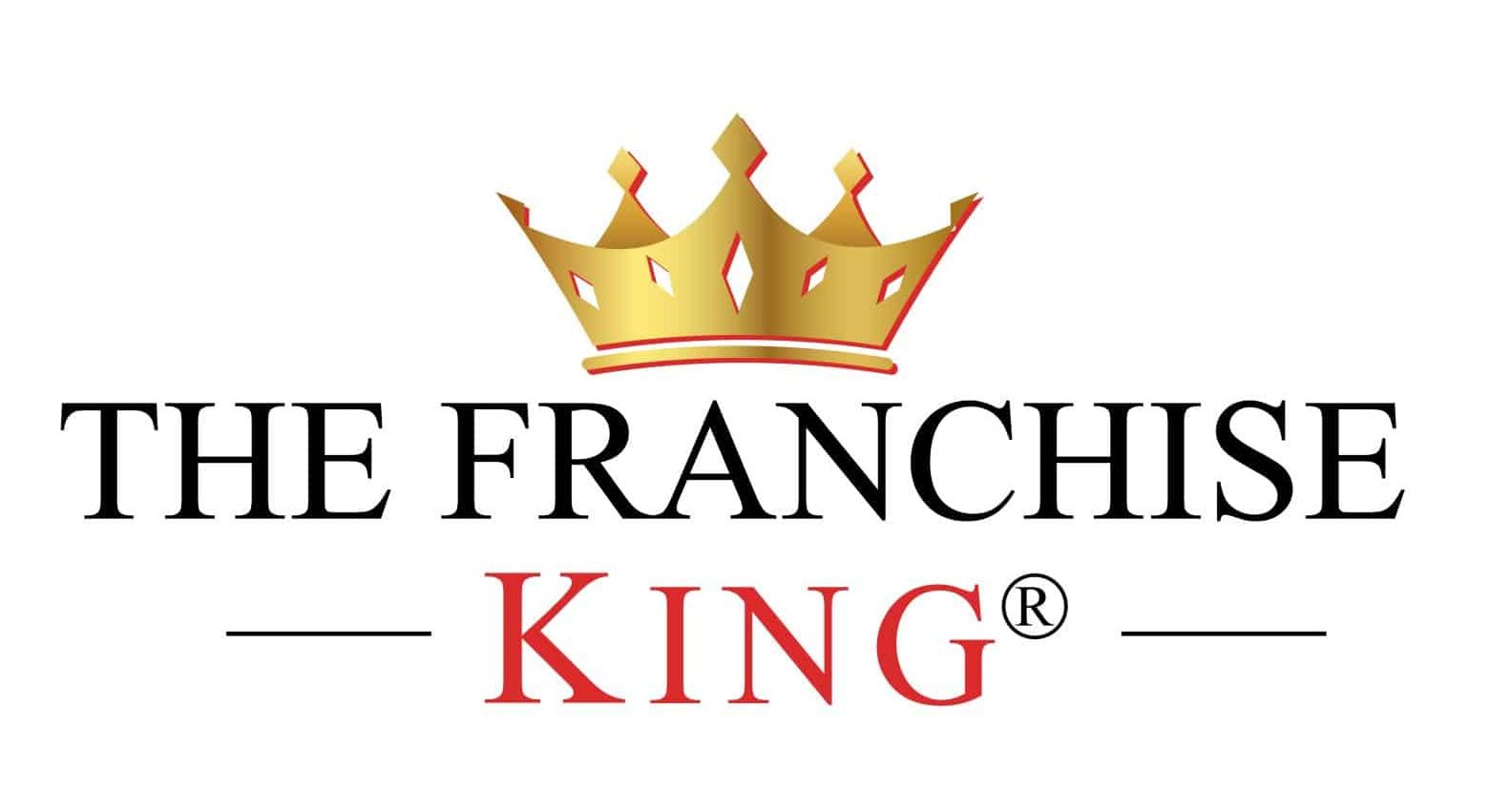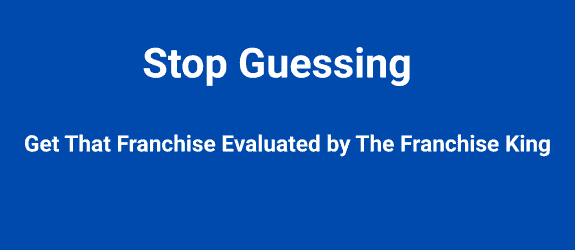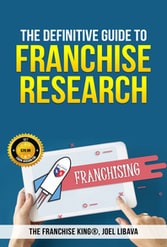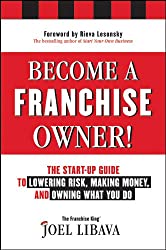
Learning how to read a Franchise Disclosure Document is one of the things standing between you and a couple hundred thousand dollar mistake. (Yikes!)
And while a good number of aspiring franchisees tend to skim through this 200+ page legal behemoth like it’s yesterday’s junk mail, industry insiders know it’s where franchisors are legally required to confess their sins.
- Hidden fees? They’re in there.
- Failed locations? Listed.
- Those darn franchisee lawsuits? Listed.
In other words, it’s all there in black and white.
But here’s the secret the franchise business world doesn’t want you to know: learning how to read a Franchise Disclosure Document isn’t just about protecting your investment – it’s about spotting opportunities that 90% of buyers miss because they’re too intimidated by the wordy and confusing legalese.
With that in mind, would you like to know what separates successful franchise owners from those who lose their hard-earned money?
It often comes down to the few hours they spent learning to decode this one document.
Keep reading so you can learn how to read a Franchise Disclosure Document and with it, how to spot red flags.
The Franchise Disclosure Document is Important. You Need to Read It.
The Franchise Disclosure Document (FDD) is a super-important document.
As a matter of fact, this document is so important, the Federal Trade Commission (FTC), suggests that franchise buyers “read the entire Franchise Disclosure Document before entering into a formal agreement with a franchise company.”
And speaking of the FTC, you should read: “A Consumer’s Guide To Buying A Franchise.”
Note: A few years ago, a U.S. government representative asked me to read through the latest version of their guide. They wanted my opinion on its contents. It’s an excellent resource for today’s franchise buyers. You?
And speaking of reading through documents, have you ever read a Franchise Disclosure Document?
Wait, do you know what a FDD is?
Do you know when you’ll get it?
Maybe we should start at the beginning.

Searching For And Choosing a Franchise
Before the Franchise Disclosure Document becomes a thing, you first need to search for a franchise. One that piques your curiosity.
Once you’ve find a franchise opportunity or three you’re interested in, contact the franchisor. Use the contact form on the website you found them on.
Once you’ve done that, expect an email or a phone call from someone at franchise headquarters. Allow the franchise representative to tell you about the business. Get some details. Then find out what your specific role would be as a franchise owner.
Then, if you’re still interested after learning those things, keep going. Buying a franchise…getting all of that information, is a process.
And getting the Franchise Disclosure Document sent to you is a part of it. One that’s always included.
That’s because, by law, anyone looking at a franchise opportunity must receive the FDD no less than 14 days prior to signing a franchise agreement or paying any money to the franchisor.
But sometimes, franchisors delay sending you their FDD. Why?
Watch this short video.
So what’s included in this important franchise document?
The Franchise Disclosure Document Includes…
The U.S. Government requires franchisors to list the following 23 items in their FDD. They are:
- The Franchisor, its Predecessors, and its Affiliates
- Business Experience
- Litigation
- Bankruptcy
- Initial Franchise Fee
- Other Fees
- Initial Investment
- Restrictions On Sources Of Products And Services
- Franchisee’s Obligations
- Financing
- Franchisor’s Obligations
- Territory
- Trademarks
- Patents, Copyrights and Proprietary Information
- Obligation To Participate In The Actual Operation Of The Franchise Business
- Restrictions On What The Franchisee May Sell
- Renewal, Termination, Transfer And Dispute Resolution
- Public Figures
- Earnings Claims-Financial Performance Representations
- List Of Outlets
- Financial Statements
- Contracts
- Receipt
The Franchise Disclosure Document Is A Document You Need To Read. Period.
My dad always told me that “The FDD isn’t the business. You’re not buying a document-you’re buying a business.”
His statement was true then, and it’s true now.
However, as I wrote in this article for the U.S. Small Business Administration, there are 3 things in the FDD that are super-important to know about.
How To Read A Franchise Disclosure Document
Here’s what you’ve been waiting for. Here’s how to read it:
Slowly and carefully.
That’s it.
Furthermore, I encourage you to use a yellow highlighter to “highlight” the items you don’t completely understand, or want more clarity on.
And you certainly don’t need to buy a book or an overpriced online course that promises to teach you how to read and analyze a FDD. Why?
Because reading the Franchise Disclosure Document is like reading any long, wordy business document that includes a lot of legal terms and financial information. You muddle through it.
Here are 12 tips on reading difficult text and documents.
And when it comes to “analyzing” it, you don’t need to do it.
That’s what a franchise attorney is for!
Because franchise lawyers are the ones who write FDD’s. Who better to analyze them.
“But wait, Joel. I like analyzing things.”
That’s fine.
But once you start…you may not be able to stop.
And before you know it, one month…maybe a month in a half have gone by, and you find that you’ve accomplished nothing.
Do you want to be in business for yourself, or do you want to analyze documents and numbers?
This next part is important.
Franchisee Earnings Claims

Item #19. For some, that’s where the rubber hits the road.
Not for me though.
In a nutshell, Item 19 is where some franchisors share franchisee revenue numbers. Again, some…not all.
Some of the folks in my industry suggest that today’s franchise buyers shouldn’t bother looking at franchise opportunities in which earnings numbers or FPR’s (financial performance representations) are not included in their FDD’s. Don’t listen to them. They’re wrong, and here’s why.
Because the numbers disclosed are almost always averages.
This Pet Franchise Does $750K In Year 2!
You may have seen statements like that. That’s great. But…
It doesn’t mean you’ll do $750k in your franchise business in year #2.
But if you’re like most people, you tell yourself you’ll be able to do $750k.
That’s because you’re smart, talented, and have incredible business acumen. It should be no problem!
Of course you may only end up doing $325,000 in your 2nd year. How would that make you feel?
On the other hand, you may end up doing close to $1 million in year #2. You’d be okay with that, right?
But you won’t know until you’re a franchisee!
My point?
Don’t rely on the Franchise Disclosure Document for your earnings.
Speaking of Pet Franchises, check this winner out!
Ignore These People!
You need to ignore the people in franchising who push hard on you to understand the numbers-and even rely on them. Why?
Because they’re doing it to sell you something. Or to get you to visit their website. Or both.
They certainly aren’t doing it out of concern for you’re well being.
Think about it.
The numbers you’re seeing franchisees do (from the FDD) aren’t the numbers you’ll end up doing. Why is that, Joel?
Because you’re not them!
You’re not located in their area of the country.
You don’t have their background or their staff. Or even their expenses.
Finally, what if your business only does $150,000 in revenue in year #2?
Exactly.
Earnings Claims, The FDD, And The Franchise Industry
Since it’s damn near impossible for you to predict how much revenue you’ll bring in as a franchisee, why would you rely on a document that shows averages? Think about it. There are so many variables that can and will affect your earnings. Like:
- Your geographic location
- Rent/utilities
- Payroll
- Local market conditions
- The economy
- Public Relations (positive/negative PR about the franchisor)
So, why do some of my fellow industry professionals want you to focus a lot of time and energy on the numbers?
In their own minds they must think doing so will help you make a good decision. But they’re missing the point.
You’re not buying numbers.
You’re buying a business.
More importantly, you’re buying a way to get more control of your life. More control of your career.
But the biggest thing these franchise industry folks are missing is the human part of researching and buying a franchise.
The calling individual franchisees part of the franchise discovery process. And the in-person franchise visit part.
The part in which you-the prospective franchise owner asks about sales, earnings, and even bottom-line profits, face-to-face. 1:1.
But there’s something else.

Franchise Disclosure Documents Are Free
That’s right. You don’t need to buy Franchise Disclosure Documents.
That’s because they’re freely available if you have access to the internet.
Just go to the state of Wisconsin’s free Franchise Disclosure Document page, and type in the name of the franchise you’re interested in. You’ll get a link to download the most current Franchise Disclosure Document. For free!
Don’t Freak Out About The FDD
Lots of people get absolutely freaked out about the FDD.
As a matter of fact, some people get themselves so spun out…so worked up about this (somewhat complex) document, that it prevents them from moving forward. I’ll explain.
I’ve worked with more than a few franchise candidates, who, after reading through the information contained in the FDD, told me they’re not interested in becoming franchise owners anymore. But why?
Because, for them, seeing all the different things franchisors require their franchisees to do, along with the amount of rules that are in place, (to protect the business model and maintain brand consistency), felt like too much for them. Hey…it happens. And once again, it has nothing to do with numbers.
The Franchise Model Is Rigid
Please remember that the business model of franchising is a rigid one. All franchise opportunities have that in common. And once you read the contract-the actual franchise agreement, you’ll pick up what I’m putting down.
In view of that, you need to understand that owning a franchise business demands serious rule-following. That is to say you need to follow specific procedures that every other franchisee follows, system-wide.
That said, can you imagine what this franchise business would be like if all of their franchisees did their own thing? If all the franchisees ignored their franchise agreements and invented their own cheeseburgers?
Finally, you need to make a decision.
Either you are or you aren’t going to be happy owning a business where rules and policies need to be followed-all the time.
To be blunt, if you’re not comfortable with a rule-based system, don’t bother looking at franchising. You’ll end up being frustrated and you could potentially become a former franchisee (and lose money).
Do These Things So You Won’t Freak Out About The FDD
1. Avoid listening to franchise industry folks who don’t understand the human part of the franchise purchasing process.
2. Spend time over the phone and in-person, with franchisees. Get to know them. See what you have in common. See (with your own two eyes) if they’re reasonably happy and making money.
3. Go over the FDD. Do it alone first. Then hire a sharp franchise attorney to look it over.
4. Attend a Discovery Day.
5. Draw up a thorough business plan-even if you’re not getting a small business loan for your franchise.
6. Take a few days off. Commune with nature. Get some fresh air. Clear your head.
Then make your decision.
Just don’t base it on a the Franchise Disclosure Document. Base it on what you’ve been able to find out…on a human level.
In other words, you need make sure the franchise opportunity you’re interested in buying makes sense for you, is affordable, and it will allow you to use your best skills to operate and grow it.
Important Franchise Buying Tip
When it’s time to move forward with the opportunity, you need to hire a franchise attorney to go through the FDD with you. She’ll point out things that you may not understand or know abot, along with any red flags she sees.
A Gentle Reminder About Reading The Franchise Disclosure Document
Don’t waste your time reading the FDD right away. Wait awhile. Learn all you can about the concept. Listen to what the franchisor has to say. Follow the process that the franchise rep has set up for you. Then if you like what you hear, reading the Franchise Disclosure Document is the next natural step.
In other words, you need make sure the franchise opportunity you’re interested in buying makes sense for you, is affordable, and it will allow you to use your best skills to operate and grow it.
Provided you feel the franchise business can help you reach your personal and professional goals, go ahead and dig into the FDD. Read it from cover to cover. Then, write down any questions or concerns you have and share them with the franchise representative you’ve been talking with.
Finally, hire a competent franchise lawyer to go over the Franchise Disclosure Document with you.
Then you can make your decision on whether or not to buy the franchise you want to own.
And if you listen to my suggestions, your decision won’t be based on numbers alone.
Franchise Disclosure Document FAQ’s
The Franchise Disclosure Document (FDD) is a document that contains important information about a franchise opportunity. It is important because the Federal Trade Commission (FTC) suggests that franchise buyers read the entire document before entering into a formal agreement with a franchise company.
The FTC suggests that franchise buyers read the entire Franchise Disclosure Document before entering into a formal agreement with a franchise company.
The 23 items required by the U.S. government to be listed in an FDD are: The Franchisor, its Predecessors, and its Affiliates; Business Experience; Litigation; Bankruptcy; Initial Franchise Fee; Other Fees; Initial Investment; Restrictions On Sources Of Products And Services; Franchisee’s Obligations; Financing; Franchisor’s Obligations; Territory; Trademarks; Patents, Copyrights and Proprietary Information; Obligation To Participate In The Actual Operation Of The Franchise Business; Restrictions On What The Franchisee May Sell; Renewal, Termination, Transfer And Dispute Resolution; Public Figures; Earnings Claims-Financial Performance Representations; List Of Outlets; Financial Statements; Contracts; Receipt; termination, restriction, obligations.
Potential franchisees should not rely on the FDD for their earnings predictions because the numbers disclosed are almost always averages and there are many variables that can and will affect their earnings.
Potential franchisees should avoid listening to franchise industry folks who don’t understand the human part of the franchise purchasing process, spend time over the phone and in-person with franchisees, go over the FDD, attend a Discovery Day, draw up a thorough business plan, take a few days off to clear their head, and hire a franchise attorney to go through the FDD with them.
About the Author
The Franchise King®, Joel Libava, is a leading franchise expert, author of "Become a Franchise Owner!" and "The Definitive Guide to Franchise Research." Featured in outlets like The New York Times, CNBC, and Franchise Direct, Joel’s no-nonsense approach as a trusted Franchise Ownership Advisor helps aspiring franchisees make smart, informed decisions in their journey to franchise ownership. He owns and operates this franchise blog.
Note: When you buy through links on this website, we may earn an affiliate commission.









